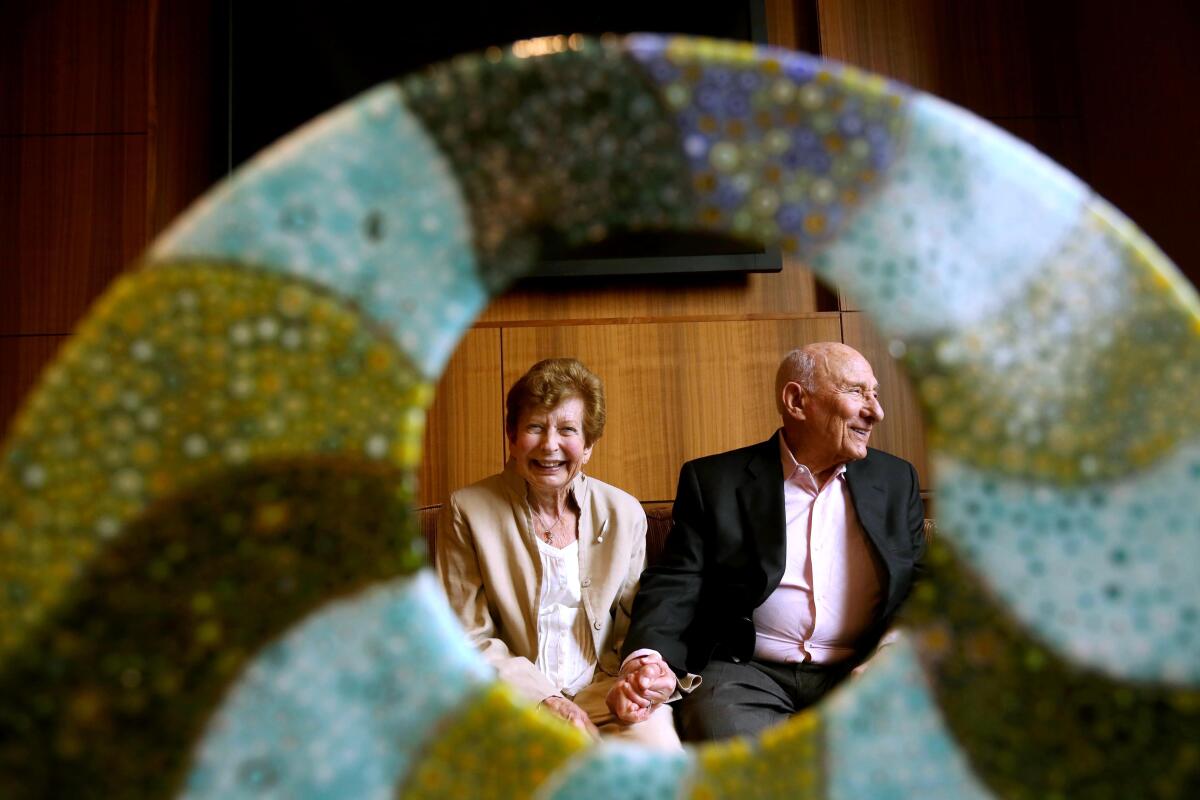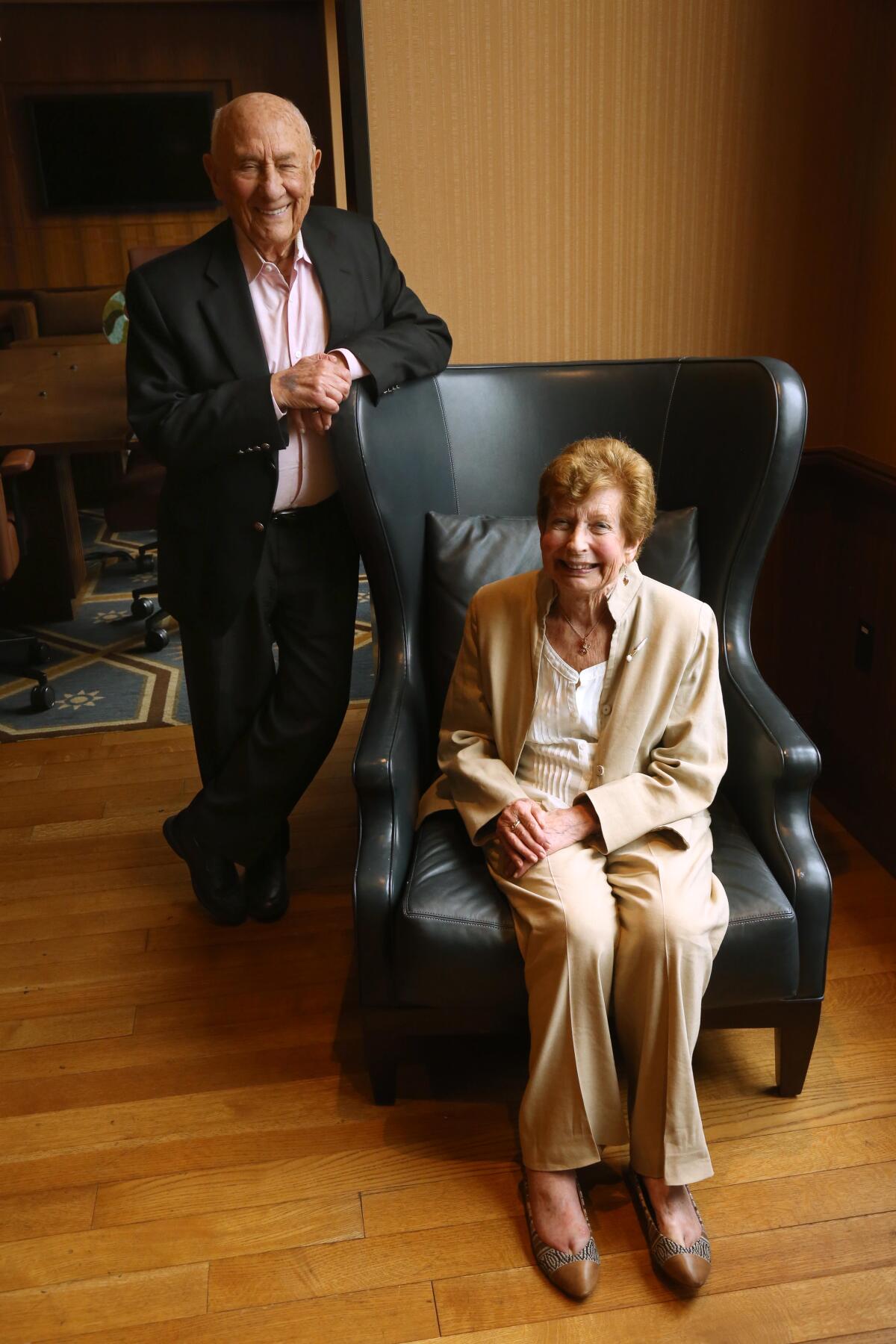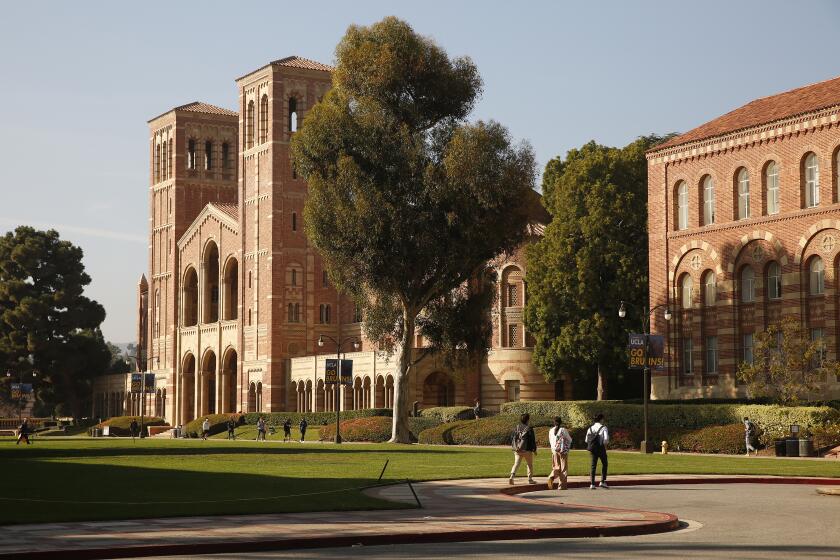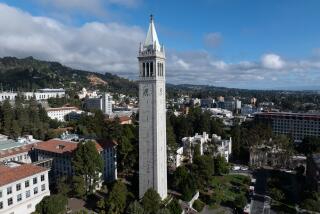Luskins donate $25 million to UCLA history department ‘in service to the public good’

As a UCLA student in the 1940s, Meyer Luskin decided he could not make a living with a history degree. This week, the economics graduate pledged $25 million to the history department in hopes of inspiring current students to choose the path he did not.
This gift, announced Tuesday, is the single largest donation the department and the UCLA Social Sciences Division have received. The Southern California business leader and his wife, fellow UCLA alum Renee Luskin, have given close to $200 million to their alma mater over the years. The history department will be renamed in their honor.
For the record:
4:42 p.m. July 17, 2024An earlier version of this story incorrectly quantified the legislation states have passed to reshape school history curriculums.
“We believe the study of history is vital in creating informed participants in a vibrant democratic society,” Meyer Luskin said. “This gift will ensure that students and faculty have ample resources and opportunities to study the past, which will allow them … further understanding of the present in service to the public good.”
The donation comes at a pivotal moment for history scholarship. Since 2017, states have cumulatively passed 120 pieces of legislation reshaping the way schools are allowed to teach about race and gender. Meanwhile, some universities have moved to cut their humanities programs amid budget constraints and declining enrollment.
With this donation, the Luskins seek to maintain the department’s role as a national leader. Their funds also will bolster initiatives such as updating school curriculum from kindergarten through high school to include the experiences of women and people of color.
UCLA gets $100-million donation
Luskin said he hopes students and the general public will re-embrace the perspectives that history can provide, rather than getting caught up in the immediacy of social media and misinformation.
“I want everyone to appreciate the value of where we’ve been, what’s happened, where [there] were the mistakes and how we can avoid repeating them,” Luskin has said. “It’s going to be a dangerous outcome if people continue to get so caught up in daily and transitory events without a true vision of where we’ve been and where we’re going.”

After graduating from UCLA with a bachelor’s degree in economics in 1949, Luskin earned a master’s degree from Stanford University and became a leader in recycling and processing food waste into animal feed as president of Scope Industries.
He attributes his success to a $30 scholarship that UCLA awarded him to continue his studies after returning from military service in World War II.
Part of the couple’s most recent gift will go toward supporting graduate fellowships. In this way, the Luskins said, they hope to continue giving other students the same opportunity to pursue education that they had.
“We’ve seen value come from the help we’ve given,” Luskin said in an interview. “We’ve spoken to so many graduates who tell us without the fellowships, without the scholarships, they never would have been able to attend graduate school.”
Though he never finished his history degree, Luskin said he continues to see the benefit in studying and learning about history.
Andrea and Donald Goodman, and Renee and Meyer Luskin, donated the money for the UCLA Goodman-Luskin Microbiome Center to develop treatments for autoimmune diseases.
Before Scope Industries, Luskin said, he worked as a contract driller in Libya. After spending a day with a Libyan employee, he learned that, if history repeated itself, the country’s administration at the time would be overthrown, putting the industry at risk.
“Sure enough, we left there, and several years later, a dictator came in … and he nationalized the oil industry,” Luskin recalled. “All the American companies and all the contractors lost money and went broke, and I was saved because I was interested in history.”
It is that same philosophy — applying historical knowledge to contemporary issues — that serves as the foundation of the UCLA history department and the programs this donation will support.
“It’s my understanding that so many historians do their research and writing for publishing within the world of history,” Luskin said. “What we’re hoping to encourage is publishing the results as they would apply to current society, and trying to, therefore, import facts or conclusions to our existing legislators.”
The Luskin Center for History and Policy, created with help from a $5-million donation from the Luskins in 2017 and furthered by the recent donation, seeks to do just that. By convening university scholars, outside experts and government officials, the center puts out reports that look at how issues such as homelessness have been addressed in the past to offer alternative solutions to current crises.
However, it’s not just policymakers that these initiatives seek to address.
The Public History Initiative, which will also be supported by this recent donation, aims to teach undergraduate students how to write for a public audience. It also places students in internships with community partners where they can explore possible career paths and experience firsthand how history is applicable outside of academia.
David Myers, director of the Luskin Center for History and Policy, said studying history helps students understand how things come to be, how they went awry, and how to prevent problems in the future. This skill, Myers said, students can take with them to any profession.
“I really do believe there is no door that history doesn’t open, which is quite different from some other disciplines,” Myers said. “Ours is a much more universal array of vocational options which really enables us to send students out into the world with the capacity not just to be effective workers, but to be actively engaged in civic life. That’s the essential precondition to informed engagement in civil society — having that depth of historical perspective.”
The donation also will be used to support the department’s Why History Matters series and the new Making History in Los Angeles program, both of which contribute to UCLA’s responsibility to be an “illuminator of the path from the past to the present,” Myers said.
Myers added that looking to the past becomes increasingly important when the fate of democracy hangs in the balance.
“It’s so terribly important to be reminded of previous periods in which we saw great threats to democracy,” Myers said. “We need to be vigilant and alert to the warning signs that allow for the disintegration of a democratic system into something other than that.”
Luskin added that, if the public isn’t informed, they will be “fooled into something much worse than democracy.” In that battle, he said, universities are the first line of defense.
It doesn’t matter whether students major in history, Luskin said, but he encourages them to study it nonetheless.
“That’s the important lesson,” Luskin said. “Learn who you are, who we are, what our background is, [and] how that would help us get to someplace better.”
More to Read
Sign up for Essential California
The most important California stories and recommendations in your inbox every morning.
You may occasionally receive promotional content from the Los Angeles Times.












